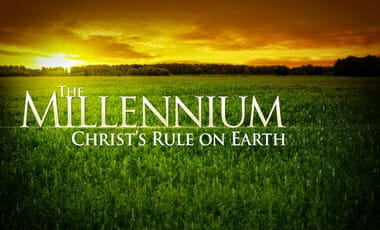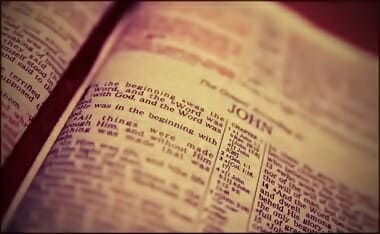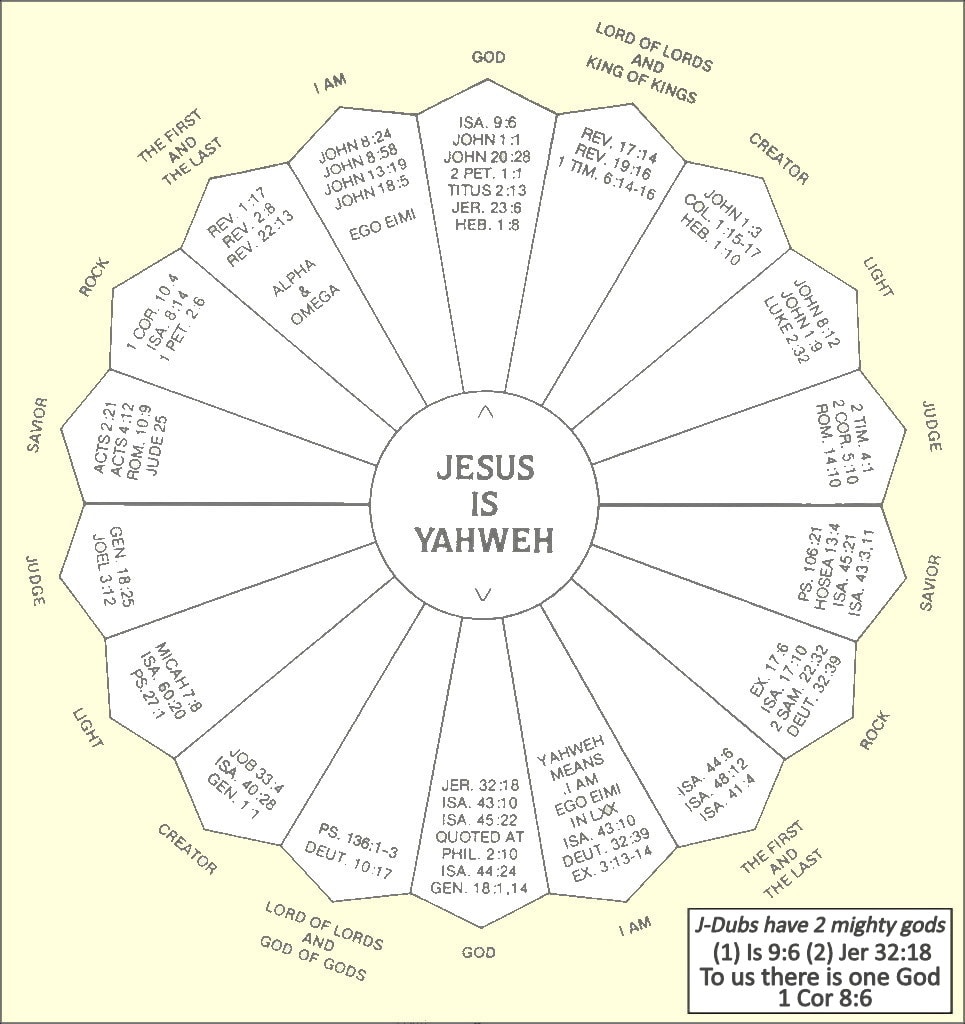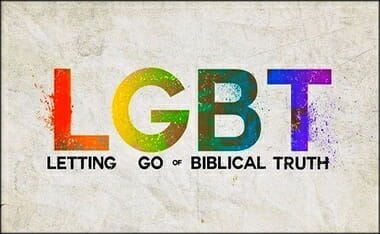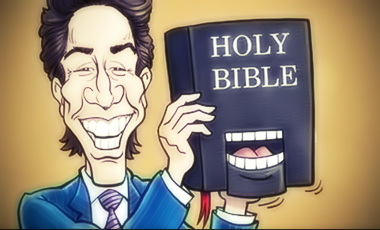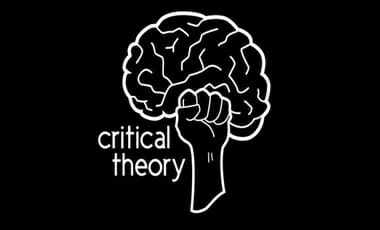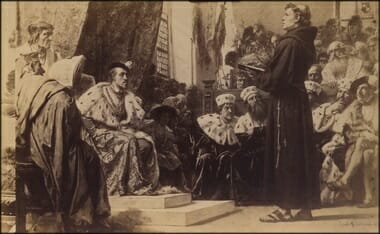1) In the beginning was the Word, and the Word was with God, and the Word was God. This One was in the beginning with God. Even the first readers of John’s Gospel must have noted the resemblance between the first phrase ἐν ἀρχῇ, “in the beginning,” and that with which Moses begins Genesis. This parallel with Moses was, no doubt, intentional on John’s part. The phrase points to the instant when time first began and the first creative act of God occurred. But instead of coming down from that first instant into the course of time, John faces in the opposite direction and gazes back into the eternity before time was. We may compare John 17:5; 8:58, and possibly Rev. 3:14, but scarcely ἀπʼ ἀρχῆς in Prov. 8:23, for in this passage “from the beginning” refers to Wisdom, a personification, of which v. 25 reports: “I was brought forth,” something that is altogether excluded as regards the divine person of the Logos.
In the Greek many phrases lack the article, which is not considered necessary, R. 791; so John writes ἐν ἀρχῇ. But in John’s first sentence the emphasis is on this phrase “in the beginning” and not on the subject “the Word.” This means that John is not answering the question, “Who was in the beginning?” to which the answer would naturally be, “God”; but the question, “Since when was the Logos?” the answer to which is, “Since all eternity.” This is why John has the verb ἦν, “was,” the durative imperfect, which reaches back indefinitely beyond the instant of the beginning. What R. 833 says about a number of doubtful imperfects, some of which, though they are imperfect in form are yet used as aorists in sense, can hardly be applied in this case. We, of course, must say that the idea of eternity excludes all notions of tense, present, past, and future; for eternity is not time, even vast time, in any sense but the absolute opposite of time—timelessness. Thus, strictly speaking, there is nothing prior to “the beginning,” and no duration or durative tense in eternity. In other words, human language has no forms of expression that fit the conditions of the eternal world. Our minds are chained to the concepts of time. Of necessity, then, when anything in eternity is presented to us, it must be by such imperfect means as our minds and our language afford. That is why the durative idea in the imperfect tense ἦν is superior to the punctiliar aoristic idea: In the beginning the Logos “was,” ein ruhendes und waehrendes Sein (Zahn)—“was” in eternal existence. All else had a beginning, “became,” ἐγένετο, was created; not the Logos. This—may we call it—timeless ἦν in John’s first sentence utterly refutes the doctrine of Arius, which he summed up in the formula: ἦν ὅτε οὑκ ἦν, “there was (a time) when he (the Son) was not.” The eternity of the Logos is co-equal with that of the Father.
Without a modifier, none being necessary for John’s readers and hearers, he writes ὁ λόγος, “the Word.” This is “the only-begotten Son which is in the bosom of the Father,” v. 18. “The Logos” is a title for Christ that is peculiar to John and is used by him alone. In general this title resembles many others, some of them being used also by Christ himself, such as Light, Life, Way, Truth, etc. To imagine that the Logos-title involves a peculiar, profound, and speculative Logos-doctrine on the part of John is to start on that road which in ancient times led to Gnosticism and in modern times to strange views of the doctrine concerning Christ. We must shake off, first of all, the old idea that the title “Logos” is in a class apart from the other titles which the Scriptures bestow upon Christ, which are of a special profundity, and that we must attempt to penetrate into these mysterious depths. This already will release us from the hypothesis that John borrowed this title from extraneous sources, either with it to grace his own doctrine concerning Christ or to correct the misuse of this title among the churches of his day. Not one particle of evidence exists to the effect that in John’s day the Logos-title was used for Christ in the Christian churches in any false way whatever. And not one particle of evidence exists to the effect that John employed this title in order to make corrections in its use in the church. The heretical perversions of the title appear after the publication of John’s Gospel.
Philo’s and the Jewish-Alexandrian doctrine of a logos near the time of Christ has nothing to do with the Logos of John. Philo’s logos is in no sense a person but the impersonal reason or “idea” of God, a sort of link between the transcendent God and the world, like a mental model which an artist forms in his thought and then proceeds to work out in some kind of material. This logos, formed in God’s mind, is wholly subordinate to him, and though it is personified at times when speaking of it, it is never a person as is the Son of God and could not possibly become flesh and be born a man. Whether John knew of this philosophy it is impossible for us to say; he himself betrays no such knowledge.
As far as legitimate evidence goes, it is John who originated this title for Christ and who made it current and well understood in the church of his day. The observation is also correct that what this title expressed in one weighty word was known in the church from the very start. John’s Logos is he that is called “Faithful and True” in Rev. 19:11; see v. 13: “and his name is called The Word of God.” He is identical with the “Amen, the faithful and true witness,” in Rev. 3:14; and the absolute “Yea,” without a single contradictory “nay” in the promises of God in 2 Cor. 1:19, 20, to whom the church answers with “Amen.” This Logos is the revealed “mystery” of God, of which Paul writes Col. 1:27; 2:2; 1 Tim. 3:16; which he designates explicitly as “Christ.” These designations go back to the Savior’s own words in Matt. 11:27; 16:17. Here already we may define the Logos-title: the Logos is the final and absolute revelation of God, embodied in God’s own Son, Jesus Christ. Christ is the Logos because in him all the purposes, plans, and promises of God are brought to a final focus and an absolute realization.
But the thesis cannot be maintained that the Logos-title with its origin and meaning is restricted to the New Testament alone, in particular to the Son incarnate, and belongs to him only as he became flesh. When John writes that the Logos became flesh, he evidently means that he was the Logos long before he became flesh. How long before we have already seen—before the beginning of time, in all eternity. The denial of the Son’s activity as the Logos during the Old Testament era must, therefore, be denied. When John calls the Son the Logos in eternity, it is in vain to urge that v. 17 knows only about Moses for the Old Testament and Christ as the Logos only for the New. Creation takes place through the Logos, v. 3; and this eternal Logos is the life and light of men, v. 4, without the least restriction as to time (New as opposed to Old Testament time). The argument that this Logos or Word “is spoken” and does not itself “speak” is specious. This would require that the Son should be called ὁ λεγόμενος instead of ὁ λόγος. The Logos is, indeed, spoken, but he also speaks. As being sent, given, brought to us we may stress the passive idea; as coming, as revealing himself, as filling us with light and life, the active idea is just as true and just as strong.
This opens up the wealth of the Old Testament references to the Logos. “And God said, Let there be light,” Gen. 1:4. “And God said, Let us make man in our image, after our likeness,” Gen. 1:26. “Through faith we understand that the worlds were framed by the word of God,” Heb. 11:3. “By the word of the Lord were the heavens made.… For he spake, and it was done; he commanded, and it stood fast,” Ps. 33:6 and 9. “He sent his word,” Ps. 107:20; 147:15. These are not mere sounds that Jehovah uttered as when a man utters a command, and we hear the sound of his words. In these words and commands the Son stands revealed in his omnipotent and creative power, even as John says in v. 3: “All things were made by him.” This active, omnipotent revelation “in the beginning” reveals him as the Logos from all eternity, one with the Father and the Spirit and yet another, namely the Son.
He is the Angel of the Lord, who meets us throughout the Old Testament from Genesis to Malachi, even “the Angel of the Presence,” Isa. 63:9. He is “the image of the invisible God, the firstborn of every creature: for by him were all things created, that are in heaven, and that are in earth, visible and invisible, whether they be thrones, or dominions, or principalities, or powers: all things were created by him, and for him: and he was before all things, and by him all things consist. And he is the head of the body, the church: who is the beginning, the firstborn from the dead; that in all things he might have the preeminence. For it pleased the Father, that in him should all fulness dwell,” Col. 1:15–19. This is the revelation of the Logos in grace. The idea that by the Logos is meant only the gospel, or the gospel whose content is Christ, falls short of the truth. “Logos” is a personal name, the name of him “whose goings forth have been from of old, from everlasting,” Micah 5:2. And so we define once more, in the words of Besser, “The Word is the living God as he reveals himself, Isa. 8:22; Heb. 1:1, 2.” Using a weak human analogy, we may say: as the spoken word of a man is the reflection of his inmost soul, so the Son is “the brightness of his (the Father’s) glory, and the express image of his person,” Heb. 1:3. Only of Jesus as the Logos is the word true, “He that hath seen me hath seen the Father,” John 16:9; and that other word, “I and my Father are one,” John 10:30.
And the Word was with God, πρὸς τὸν θεόν. Here we note the first Hebrew trait in John’s Greek, a simple coordination with καί, “and,” followed in a moment by a second. The three coordinate statements in v. 1 stand side by side, and each of the three repeats the mighty subject, “the Word.” Three times, too, John writes the identical verb ἦν, its sense being as constant as that of the subject: the Logos “was” in all eternity, “was” in an unchanging, timeless existence. In the first statement the phrase “in the beginning” is placed forward for emphasis; in the second statement the phrase “with God” is placed at the end for emphasis.
In the Greek Θεός may or may not have the article, for the word is much like a proper noun, and in the Greek this may be articulated, a usage which the English does not have. Cases in which the presence or the absence of the article bears a significance we shall note as we proceed. The preposition πρός, as distinct from ἐν, παρά, and σύν, is of the greatest importance. R. 623 attempts to render its literal force by translating: “face to face with God.” He adds 625 that πρός is employed “for living relationship, intimate converse,” which well describes its use in this case. The idea is that of presence and communion with a strong note of reciprocity. The Logos, then, is not an attribute inhering in God, or a power emanating from him, but a person in the presence of God and turned in loving, inseparable communion toward God, and God turned equally toward him. He was another and yet not other than God. This preposition πρός sheds light on Gen. 1:26, “Let us make man in our image, after our likeness.”
Now comes the third statement: And the Word was God. In English we place the predicate last, while in the Greek it is placed first in order to receive the fullest emphasis. Here Θεός must omit the article thus making sure that we read it as the predicate and not as the subject, R. 791. “ ‘The Word was with God.’ This sounds, speaking according to our reason, as though the Word was something different from God. So he turns about, closes the circle, and says, ‘And God was the Word.’ ” Luther. God is the Word, God himself, fully, completely, without diminution, in very essence. What the first statement necessarily involves when it declares that already in the beginning the Word was; what the second statement clearly involves when it declares the eternal reciprocal relation between the Word and God—that is declared with simple directness in the third statement when the Word is pronounced God with no modifier making a subtraction or limitation. And now all is clear; we now see how this Word who is God “was in the beginning,” and how this Word who is God was in eternal reciprocal relation with God. This clarity is made perfect when the three ἦν are seen to be eternal, shutting out absolutely a past that in any way is limited. The Logos is one of the three divine persons of the eternal Godhead.
2) And now the three foregoing sentences are joined into one: This One was in the beginning with God. Just as we read “the Word,” “the Word,” “the Word,” three times, like the peals of a heavenly bell, like a golden chord on an organ not of earth sounding again and again, so the three rays of heavenly light in the three separate sentences fuse into one—a sun of such brightness that human eyes cannot take in all its effulgence. “It is as if John, i.e., the Spirit of God who reveals all this to him, meant to bar from the beginning all the attempts at denial which in the course of dogmatical and historical development would arise; as though he meant to say: I solemnly repeat, The eternal Godhead of Christ is the foundation of the church, of faith, of true Christology!” G. Mayer.
The Greek has the handy demonstrative οὗτος with which it sums up emphatically all that has just been said concerning a subject. In English we must use a very emphatic “he” or some equivalent like “this One,” “the Person,” or “the same” (our versions), although these equivalents are not as smooth and as idiomatic as οὗτος is in the Greek. Verse 2 does not intend to add a new feature regarding the Logos; it intends, by repeating the two phrases from the first two sentences, once more with the significant ἦν, to unite into a single unified thought all that the three preceding sentences have placed before us in coordination. So John writes “this One,” re-emphasizing the third sentence, that the Word was God; then “was in the beginning,” re-emphasizing the first sentence, that the Word was in the beginning; finally “with God,” re-emphasizing the second sentence, that the Word was in reciprocal relation with God. Here one of the great characteristics of all inspired writing should not escape us; realities that transcend all human understanding are uttered in words of utmost simplicity yet with flawless perfection. The human mind cannot suggest an improvement either in the terms used or in the combination of the terms that is made. Since John’s first words recall Genesis 1, we point to Moses, the author of that first chapter, as another incomparable example of inspired writing—the same simplicity for expressing transcendent thought, the same perfection in every term and every grammatical combination of terms. Let us study Inspiration from this angle, i.e., from what it has actually produced throughout the Bible. Such study will both increase our faith in Inspiration and give us a better conception of the Spirit’s suggestio rerum et verborum.
3) The first four sentences belong together, being connected, as they are, by two καί and the resumptive οὗτος. They present to us the person of the Logos, eternal and very God. Without a connective v. 3 proceeds with the first work of the Logos, the creation of all things. All things were made through him; and without him was not made a single thing that is made. The negative second half of this statement re-enforces and emphasizes the positive first half. While John advances from the person to the work, this work substantiates what is said about the person; for the Logos who created all things must most certainly be God in essence and in being.
“All things,” πάντα without the article, an immense word in this connection, all things in the absolute sense, the universe with all that it contains. This is more than τὰ πάντα with the article, which would mean all the things that exist at present, while πάντα covers all things present, past, and future. While the preposition διά denotes the medium, Rom. 11:36 and Heb. 2:10 show that the agent himself may be viewed as the medium; hence “through him,” i.e., the Logos, must not be read as though the Logos was a mere tool or instrument. The act of creation, like all the opera ad extra, is ascribed to the three persons of the God-head and thus to the Son as well as to the Father; compare the plural pronouns in Gen. 1:26.
The verb ἐγένετο, both in meaning and in tense, is masterly. The translation of our versions is an accommodation, for the verb means “came into existence,” i.e., “became” in this sense. The existence of all things is due to the Logos, not, indeed, apart from the other persons of the Godhead but in conjunction with them, as is indicated throughout the creative speaking in Gen. 1. “All things came into being” since the beginning, the Logos through whom they were called into being existed before the beginning, from eternity. The verb “became” is written from the point of view of the things that entered existence, while in Genesis the verb “created” is written from the viewpoint of God, the Creator. John repeats ἐγένετο in the negative part of his statement and adds the perfect tense γέγονεν in the attached relative clause. These repetitions emphasize the native meaning of this verb. As creatures of the Logos “all things became.”
The punctiliar tense, a historical aorist, is in marked contrast to the durative imperfect of the four preceding ἦν. This aorist goes back to the creative acts of Gen. 1. These acts are fundamental; for all creatures that came into existence in the later course of time have their origin in the creative acts of that wonderful week recorded in Genesis. We may thus pass down through the centuries, even to the last day of time, and always it will be true: ὁ κόσμος διʼ αὑτοῦ ἐγένετο, “the world was made through him,” v. 10, where this significant verb is repeated for the fourth time.
John’s positive statement is absolute. This the negative counterpart makes certain: and without him was not a single thing made that is made. Whereas the plural πάντα covers the complete multitude or mass, the strong singular οὐδὲ ἕν points to every individual in that mass and omits none. “Not one thing” is negative; hence also the phrase with the verb is negative, “became without him” or apart from him and his creative power. Apart from the Logos is nihil negativum et privativum. Yet in both the positive and the negative statements concerning the existence of all things and of every single thing the implication stands out that the Logos himself is an absolute exception. He never “became” or “came into existence.” No medium (διά) is in any sense connected with his being. The Son is from all eternity “the uncreated Word.”
The relative clause ὃ γέγονεν is without question to be construed with ἕν and cannot be drawn into the next sentence. We need not present all the details involved in this statement since the question must be considered closed. The margin of the R. V., which still offers the other reading, is incorrect and confusing. No man has ever been able to understand the sense of the statement, “That which hath been made was life in him.” Linguistically the perfect tense with its present force, γέγονεν, clashes quite violently with the following imperfect tense ἦν, so violently that the ancient texts were altered, changing οὑδὲ ἕν into οὑδέν, and ζωὴ ἧν into ζωή ἐστιν. But even these textual alterations fail to give satisfaction apart from the grave question of accepting them as the true reading of the text. So we read, “And without him not a single thing that exists came into existence.” The perfect tense γέγονεν, of course, has a present implication and may be translated, “that exists” or “that is made.” But the perfect tense has this force only as including the present result of a past act. The perfect always reaches from the past into the present. The single thing of which John speaks came into existence in the past and only thus is in existence now. What John thus says is that every single thing that now exists traces its existence back to the past moment when it first entered existence. Thus the aorist ἐγένετο is true regarding all things in the universe now or at any time. Every one of them derives its existence from the Logos. Since γέγονεν as a perfect tense includes past origin, we should not press its present force so as to separate the past creative acts of the Logos from the present existence of the creature world.
C. H. Lenski, The Interpretation of St. John’s Gospel (Minneapolis, MN: Augsburg Publishing House, 1961), 27–38.
